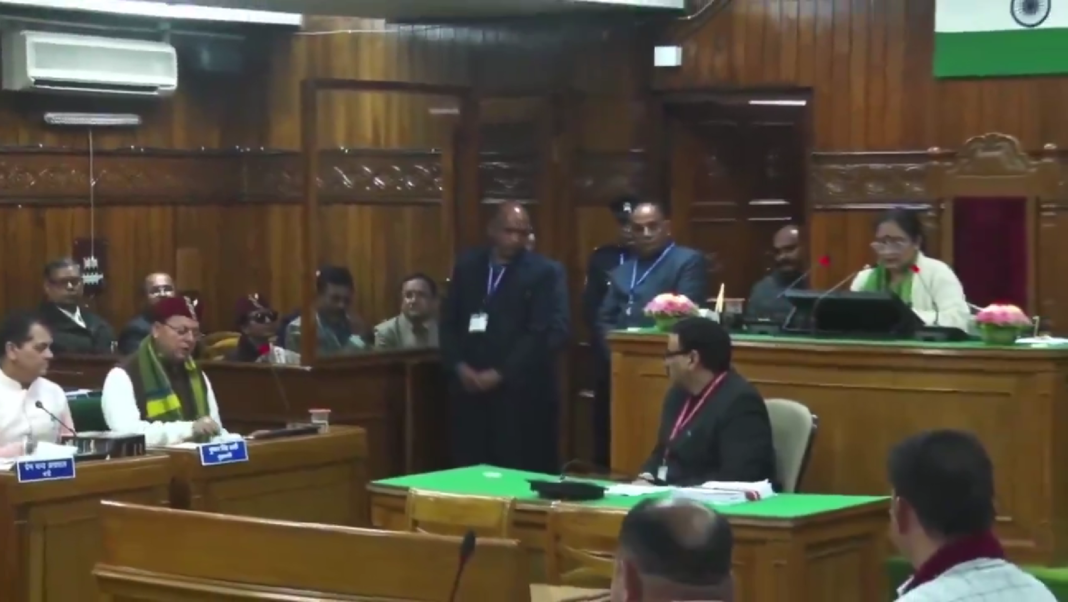Shillong, Feb 7: The Uttarakhand Assembly on Wednesday passed the Uniform Civil Code (UCC) Bill by voice vote after a debate that went on for two days with Chief Minister Pushkar Singh Dhami terming it as a “historic moment” in the country.
This makes Uttarakhand the first state in the country to have a Uniform Civil Code, which combines laws on marriage, divorce, inheritance, and other aspects.
View this post on Instagram
Hailing the support of the Assembly towards the Bill, Dhami said the UCC will benefit all people. “This bill will strengthen our age-old slogan of unity in diversity. King Baghirathi had brought Ganga water on this earth,” he remarked.
Dhami explained the UCC process, mentioning that they conducted 43 public discussions, with almost 10% of households in the state taking part. He shared that 2.32 lakh people provided suggestions to the UCC committee.
The UCC Bill, soon to become an act, is shaped according to the draft suggestions made by a high-level committee formed by the Uttarakhand government and led by retired Supreme Court judge Justice Ranjana P Desai.
Scheduled Tribes (ST) community to remain out of the purview of the UCC
The Uttarakhand government has clarified that the Uniform Civil Code (UCC) will exempt the Scheduled Tribes (ST) community.
The UCC will not apply to “members of any Scheduled Tribes within the meaning of clause (25) of Article 366 read with Article 142 of the Constitution of India and the persons and group of persons whose customary rights are protected under Part XXI of the Constitution of India.”
UCC key features
The UCC has some important features, such as ensuring sons and daughters have equal rights to property, removing the difference between legitimate and illegitimate children, considering adopted and biological children equally, and granting equal property rights after death.
The bill also requires the registration of live-in relationships, considers children born from such relationships as legitimate, and provides maintenance to deserted women.
Other key points include banning polygamy and child marriage, setting a common marriageable age for girls of all faiths, and having similar grounds and procedures for divorce.
Also Read: West Bengal shocker! Class 8 student kills junior to get a school holiday
Watch





